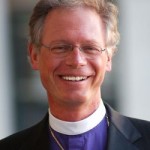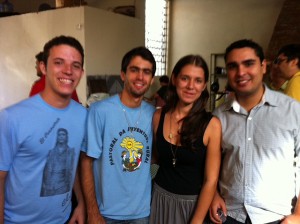The Rt. Rev. Marc Andrus, Bishop of California, is attending the Episcopal USA – Anglican Church in Brazil Bilateral Meeting this week. He went to Brazil tired and “bracing” himself for long meetings. Instead, thanks be to God, he has been surprised by hope. The people with whom he is meeting – landless young adults, indigenous peoples and Anglican priests – have united in their commitment to Christ and environmental justice. His message now: Look forward to these encounters, where Christ is present and God’s love and hope are made manifest.
From Bishop Marc’s blog: Writing from the Episcopal USA-Anglican Church in Brazil Bilateral Meeting, Day 1, Saturday April 2:
After a long flight from the House of Bishops meeting (March 25–30), through D.C., to Sao Paulo, a regional air flight to Iguassu Falls, and then a two-hour drive to Cascavel, I have to admit that I was bracing myself for what had been billed as an all day “diocesan synod meeting.”
Instead, I’ve been elated all through this warm day as extraordinary groups of landless young adults, indigenous people, and priests of the Anglican Church in Brazil have been coming together in their common commitment to Christ and to the cause of environmental justice.
The young adults were born in the camps of landless agricultural workers, and are taking part in a great education effort, wherein young people teach other young people. These young women and men attend intensive classes at a university in Cascavel for two months — all day throughout the week — and then return to the camps to teach other young people. One of the young men was wearing a red thread around his wrist. I asked what it signified. He replied, “I tied it on my wrist when I began this program, and it will stay on until I complete this work.”
Read the rest of Bishop Marc’s report here







